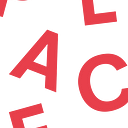What has it felt like to do this work?
Authors: Cathy Stancer and Habiba Nabatu, Oct 2019
Cathy and Habiba discuss what it has felt like to work with uncertainty and engage with people in local places.
What has it felt like to do this work?
Cathy: I think I felt intimidated by the idea of place-based work. It has been a big thing at Lankelly Chase, and there are other people interested in this kind of approach. This is for a good reason, people are thinking about how to approach social change in a way that contends with complexity and at the same time not being overwhelmed.
Initially, I found it hard to get my head around it. It’s a tangled network of relationships, people, ideas and history. I found myself asking the same questions over and over again. It was a disorienting experience. I have wondered if the nature of this work, so context-specific, is almost impossible to describe in a way that makes sense without being in it and getting to know the people involved.
Habiba: I agree, when I first started it felt intimidating and scary. Where do I to start? Who should I talk to? Whose perspective is right? It also felt cloudy. There was so much uncertainty about where to begin and the role we can play. When I spoke to different people, I realised there are different versions of the place, different interpretations of the quality of the relationships, ideas and history. I was trying not to jump to conclusions. I was trying to stay in that place of uncertainty, asking the question ‘where can Lankelly Chase add value?’ To borrow one of Myron’s maxims, we decided to start anywhere and follow it everywhere.
What are the main tasks? What have you found yourself doing?
Cathy: I am just beginning to settle into the work, so a lot of my time is spent listening. Being part of the learning community has been about listening. Getting to know people has been about listening. I have been doing a lot of listening to try and make sense of situations.
I have also taken on a facilitative role to try and get involved. In Manchester, a group of people with lived experience are starting to ask the most brilliant, and power informed questions about how they can act on their terms. And how they can create spaces for other people to do the same. This is one of the most exciting pieces of work I have been involved in at Lankelly. It’s exciting and tricky because there is no model of what this group wants to do that embodies the future.
I am also working with Habiba to help our team come into place work and to shape the next phase of learning partnership with Northumbria University. As a team, we are getting to a shared understanding of what place-based working means for us.
Habiba: Most of my time is spent supporting a small group of people locally to take forward the work. I am encouraging them to create spaces that will enable them to have conversations locally. Work out how learning can drive adaptation. Developing platforms for sharing learning and revealing things back to the local system. Supporting the development of prototypes and experiments. I am still developing my listening skills and questioning my assumptions.
Where people have the freedom to act, what are they doing that excites you?
Cathy: The work in Manchester has emerged out of the foundational work laid by the Elephants series. It is starting to pay off. Where things have seemed stuck, they are suddenly like flowers blooming. With time and investment locally and with support from us and others, there are groups of people with a sophisticated analysis of their local systems, which prompt systems change.
It feels like a platform for all sorts of things to act on. It feels like a solid basis to act with things we can get behind. Additionally, there is an excellent opportunity for our investment to explore economic inequality in the places we work. Inviting questions of power and economic inequality is very exciting.
Habiba: People feel like they are free to ask bold questions. What’s possible? What can we do differently? What kind of organisational form is possible? People with lived experience of the issues, frontline practitioners, people commissioning services — coming together to reimagine what is possible in their areas. It still feels early days, but it is exciting!
